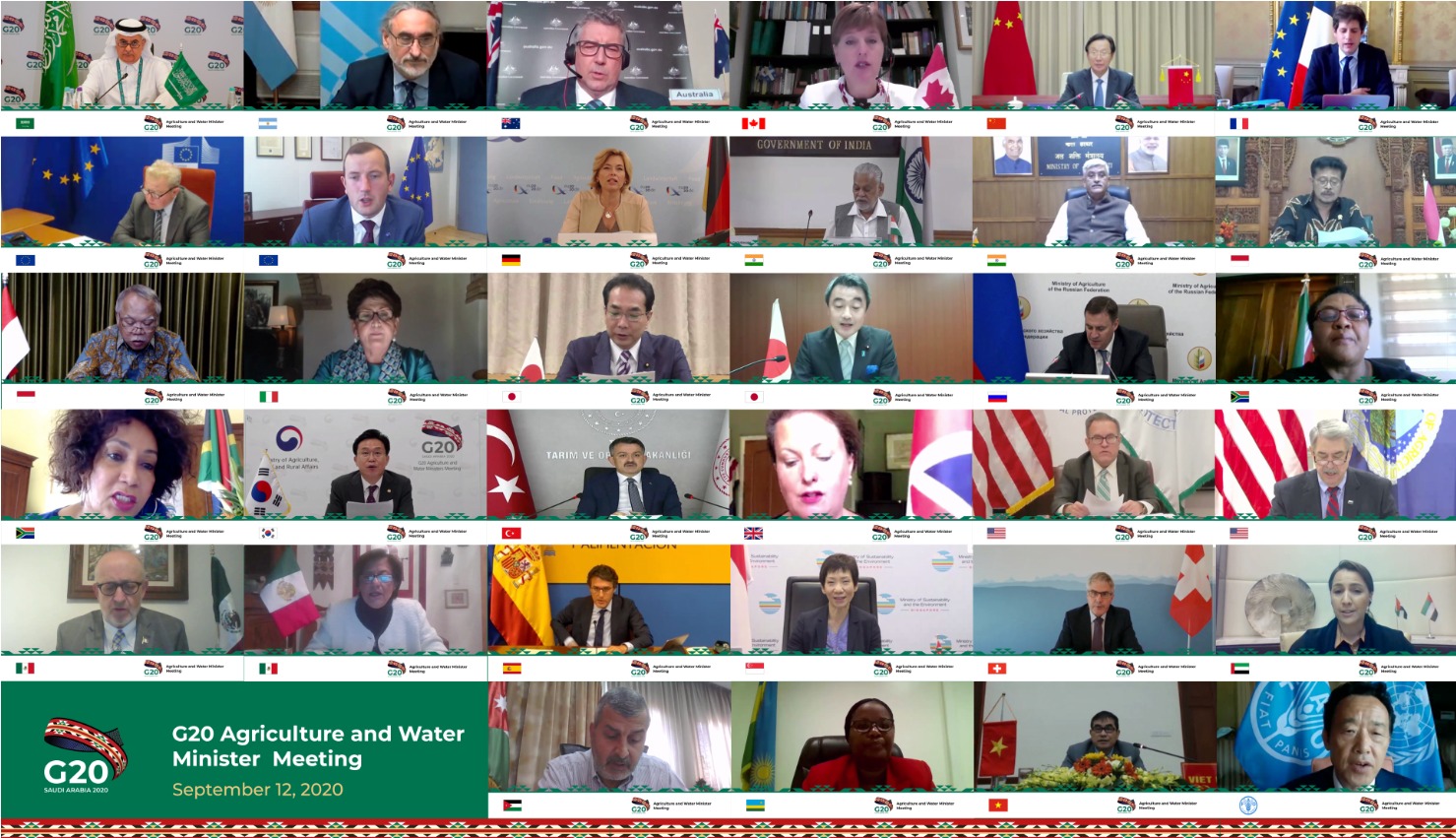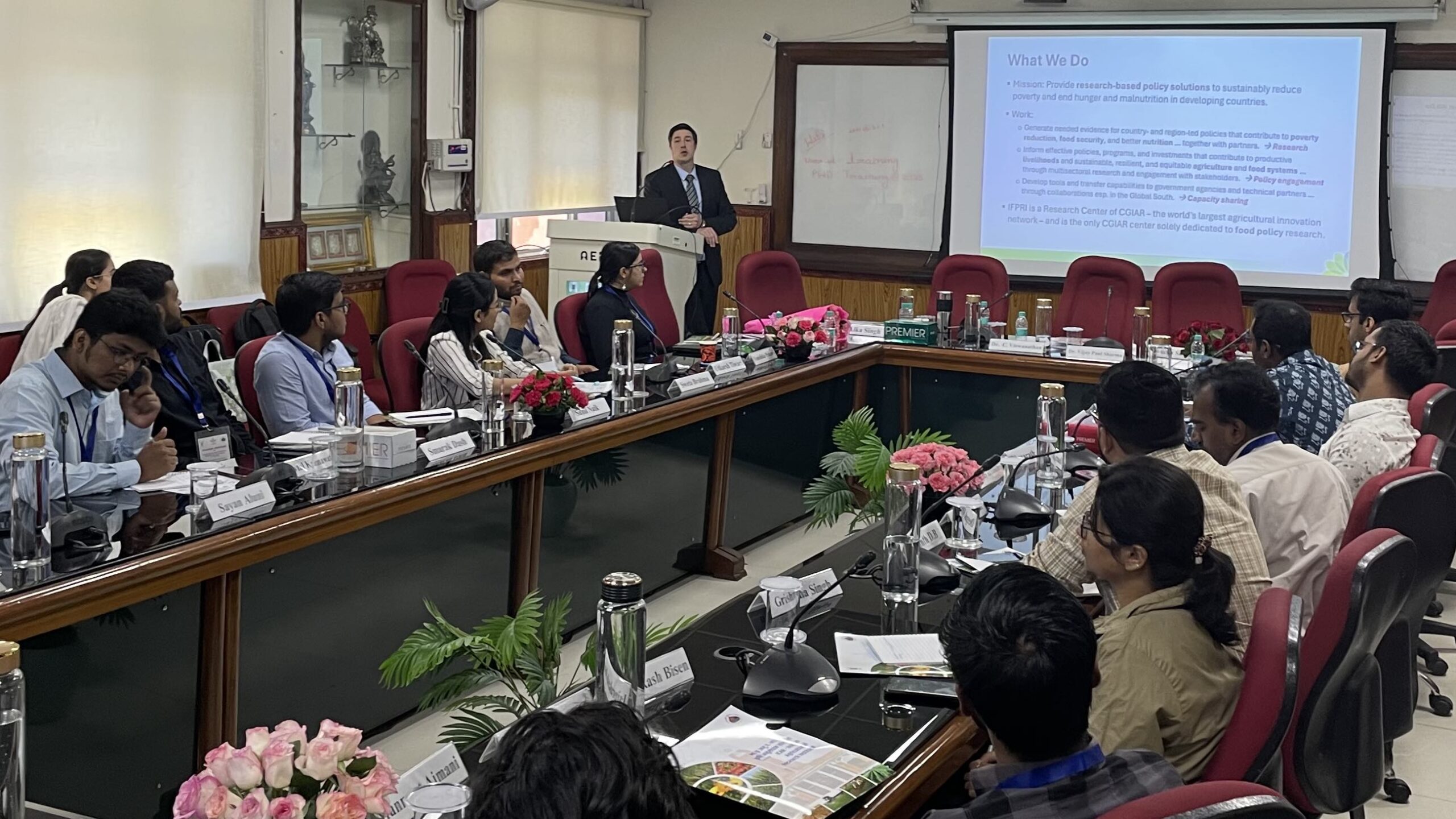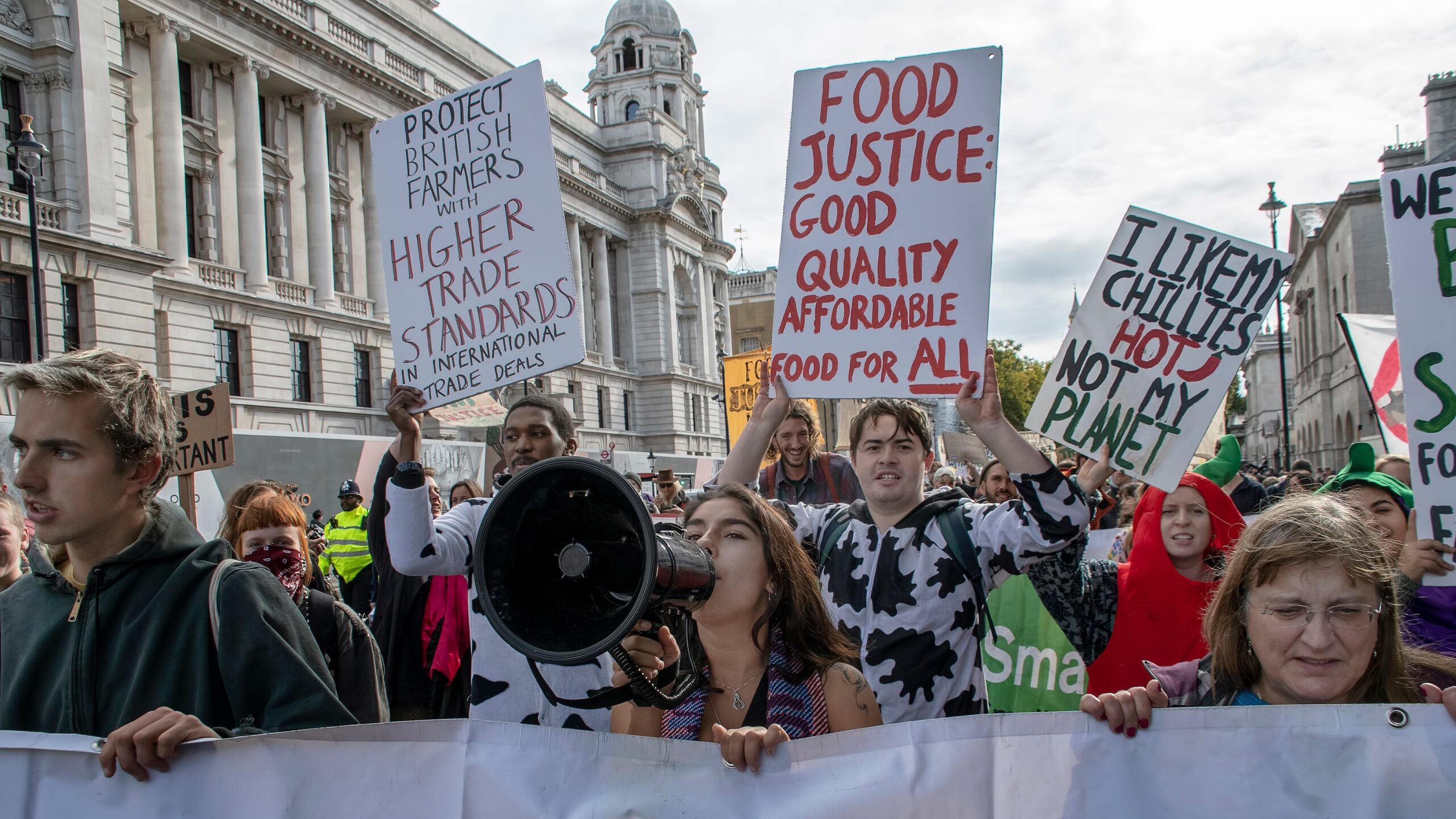This post has been updated.
Agriculture and water ministers from the G20 countries met jointly for the first time Sept. 12 to discuss COVID-19 response, food security, responsible agriculture investment, and sustainable water management. The meeting of the two groups, under the Saudi G20 Presidency, reflects the importance of the sustainable water-energy-food nexus. The ministers agreed to intensify efforts towards food security, nutrition and resilient water management, and issued a joint communique on Nov. 22.
Participants recognized the continued challenge posed by the pandemic and reaffirmed their commitments, made in a special April 21 meeting of agriculture ministers, to cooperate closely and take concrete and effective actions to safeguard global food security and nutrition and avoid unjust restrictive (trade) measures that could provoke excessive food price volatility. Whether or not due to such calls made by the G20, the World Trade Organization (WTO), and others, food-export restrictions introduced since March have been limited and short-lived (see IFPRI’s food trade policy tracker for detailed information).
The ministers reiterated the need to strengthen the monitoring of global food market conditions. In this regard, they promised to increase support on a voluntary basis to the G20 Agriculture Market Information System (AMIS), in which IFPRI participates. By emphasizing the risk of “excessive” food price volatility, they underlined the relevance of IFPRI’s food price early warning system, which tracks the degree of volatility in international markets.
The ministers also agreed to step up efforts in promoting adoption of clearer guidelines for responsible investment in agriculture and food systems consistent with the principles laid out by the World Committee on Food Security. These new commitments will be defined in the forthcoming G20 Riyadh Statement to Enhance Implementation of Responsible Investment in Agriculture and Food Systems, pending final consensus on language regarding climate change. Follow-through by national governments on this statement is voluntary. Yet it does reflect recognition that societal goals should guide investment decisions in order to sustainably feed a growing world population and achieve lasting food security and nutrition.
Pre-COVID-19, one third of global food was lost or wasted. Now, government-imposed lockdowns and closures of roads and markets have significantly increased food loss and waste in countries like India and Nigeria. But these important phenomena are difficult to track. To improve data collection and baseline estimates, the G20 agriculture ministers committed to continue working closely through various international initiatives, including the Technical Platform on the Measurement and Prevention of Food Loss and Waste, established by FAO and IFPRI in 2015 at the G20’s request.
The water and agriculture ministers also stressed water scarcity as a critical threat to food security and food system sustainability, noting that current global levels of water-related investment are inadequate to achieve the 2030 Sustainable Development Goals (SDGs). They emphasized the need to measure the true costs of water and water management, reflecting water’s social, economic and environmental value. Available estimates indicate that global investment requirements to sustainably meet demand for adequate water and sanitation infrastructure could reach $22.6 trillion by 2050. In response, ministers reiterated the need to take major steps towards greater water efficiency, integrated water management and creating enabling environments that promote responsible investment also in water infrastructure and management.
It is the responsibility of each G20 member country government to take the necessary action to make good on their commitments to making food and water systems sustainable. Citizens around the world should closely monitor their actions to make sure they are keeping those promises.
Rob Vos is the Director of IFPRI’s Markets, Trade, and Institutions Division (MTID); Swati Malhotra is an MTID Communications Specialist.







